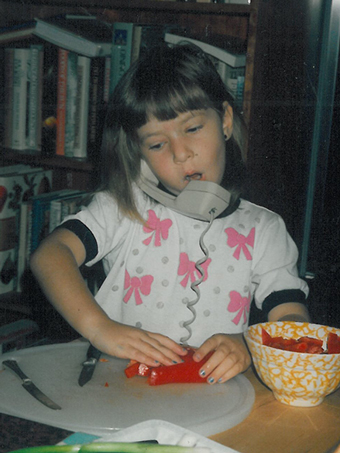
When a parent is boss, things can get complicated.
Working with family members can create a whole set of issues that non-family businesses never have to deal with. Families often struggle to preserve their close relationships while protecting the business's bottom line.
"Businesses are in business for a lot of reasons, but to make money and survive is a big one. The goal with families is to assist, support, build and help each other. And those can be at odds when combined," said Michael Klein, author of "Trapped in the Family Business."
Sally Ekus fell into her mom's business at 24. Working at her mother Lisa's culinary agency was supposed to be a temporary job situation while she got back on her feet after a breakup. But it turned out she had a real knack for the business. The mother-daughter duo has been working together for more than nine years, and Sally, 33, is now a partner.
They both credit their strong communication skills for driving their successful working relationship.
"I am all about the boundaries," said Sally. "If something feels uncomfortable, I bring it up right away. Don't let things fester below the surface."
But working side-by-side with relatives while maintaining those personal and professional boundaries is no easy feat.
So how can relatives make it work?
Don't force it
It was never the plan for Lisa's business to become a family business, which is part of the reason the pair thinks it's worked out so well.
"It was completely by accident," Sally said of joining the business. "I was on a totally different path."
Experts also advised that the younger generations establish their own professional careers outside the family business.
"It helps the younger individuals build an appreciation for work and not just having a family member as a boss," said David Karofsky, a consultant with the Family Business Consulting Group.
Outside job experience also allows children to learn different skills to bring back to the family business.
Have clear work and life separation
Establish clear boundaries of when you can and can't talk business. Maybe it's a designated business-free room if the company is run from the house, or a standing date where shop talk is prohibited.
And never let personal issues seep into the office.
"Parents and children can be more comfortable raising voices with each other than with non-family members," warned Klein. "Have a short hand for having to say, 'we need to take this offline or talk about this elsewhere."
Write job descriptions
When hiring a family member, it's helpful to create a job description that outlines responsibilities, pay and other expectations.
It's also important to make the hiring process fair so non-related workers don't worry about nepotism when a family member is brought in.

"Make job postings public," advised Klein. "It's hard to avoid 100% other employees feeling that someone got a job or promotion simply because of their last name. Family members have to make sure the perception of them is they are hard workers doing everything they need to do."
Use names in the office
Klein recommends parents and children use names while at work.
At first Sally referred to Lisa as mom while at work, but it just didn't feel right.
"I started calling her Lisa at work and when we are talking about work. But if I cross over the property line back to the house side, I immediately start calling her mom."
Using formal names in the work setting also helps set boundaries.
Don't over manage
There is a difference between mentoring and micro-managing.
When Lisa was sidelined with knee replacement surgery shortly after Sally joined the team, it gave her an opportunity to really step up — under her mother's guidance.
"During her recovery she was hyper mentoring me about book deals," Sally said. "It was thrilling and fun and very successful. If I was at an entry-level position at another agency, I wouldn't have had this type of access."
Sally also credits Lisa for sending her to conferences and continuing her education and taking her to meetings. "I overheard her language and how she did things, but she encouraged me to give my own spin on things ... she is my biggest cheerleader."
But there comes a point when the parent needs to step back. When Lisa was recently diagnosed with breast cancer and had to take some time off, Sally had grown enough to fully take over the reins.
"So many times the younger generation says, 'gee, why won't they just let go?' and the older generation is thinking, 'gee, if they just take hold,' said Karofsky. "That dance is complicated."
Be flexible
They key to being successful in business is adapting to market needs, which means everyone should be open to new ideas.
"You have to morph and change, and I am so grateful to have a partner that can do that with me," Lisa said. "She is not just the present but the future, and I want this agency to go on for a long time. I don't know exactly what that will look like, but that is for her to figure out."
